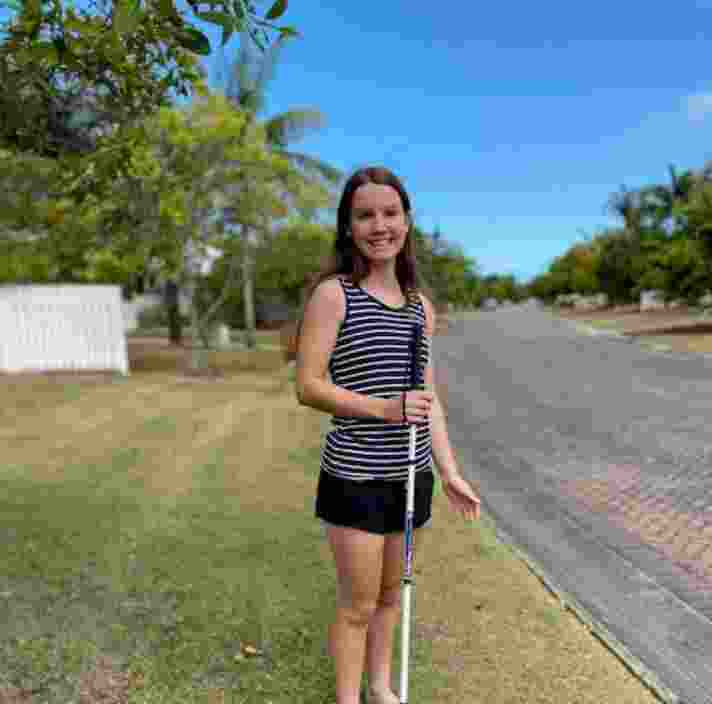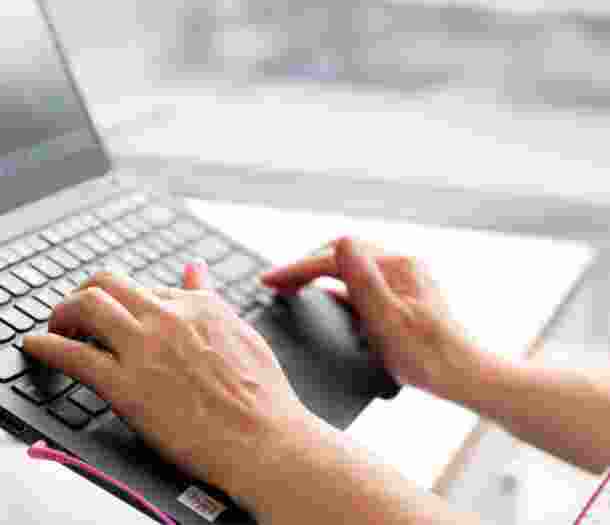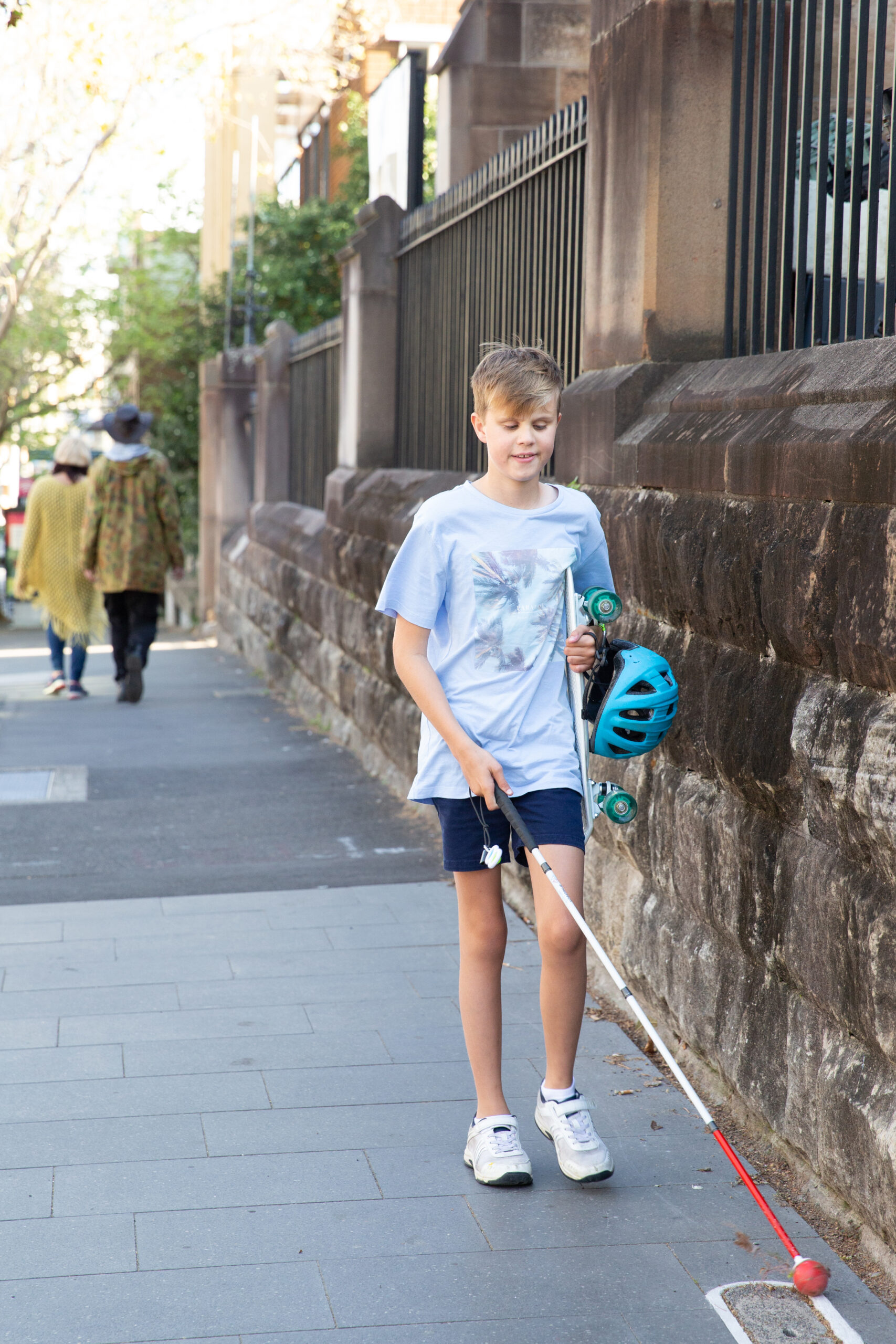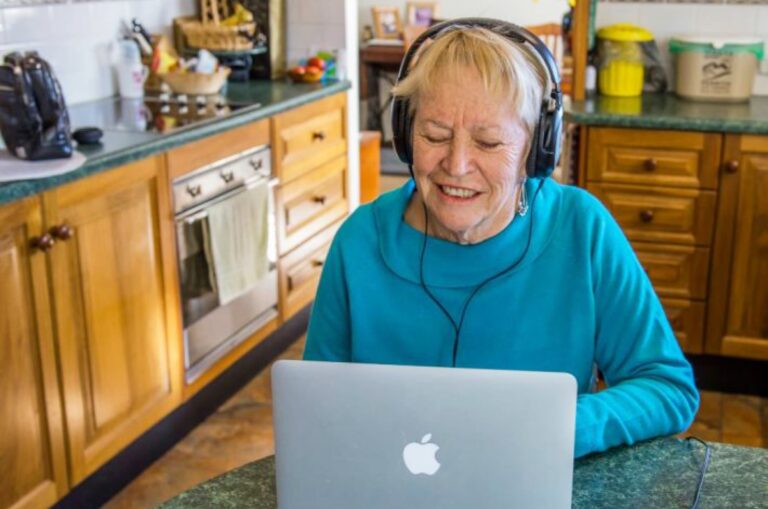What is Assistive Technology?
Discover, and learn to use, the right technology to make life easier for you.
If you have low vision or blindness, or you’ve recently experienced a change in vision, technology can be a great support. There are many tools and devices to help you:
- Access information.
- Find your way around.
- Connect with friends.
- Enjoy your favourite hobbies.
Some of these tools and technologies may be new to you, while others can connect to—or enhance—devices you already own, like your smartphone. Assistive Technologies can be used at home, work, school, and while you’re out travelling in the community.
As with any technology, it’s all about finding the right devices. We’ll partner with you to ensure:
- You’re comfortable using technology.
- Technology supports you in the type of goals you want to achieve.
- Technology makes life easy, and doesn’t create any challenges for you.
What kind of training and devices are available?
We can provide training for a wide range of devices to support your personal goals.
- Identification canes: You can use these to let other people in the community know that you have low vision or blindness. This is particularly useful in big crowds, on public transport, or in a busy city setting. We can support you to use an identification cane.
- Support canes: You can use support canes for extra balance while you’re walking, and to make sure other people can see you in the dark or during low light. We can help you with choosing and using a support cane.
- Long canes: You can use long canes to detect obstacles in your way, changes in the path ahead, and to identify different environmental features—like the texture or gradient of the ground—to help you better navigate your surroundings.
- Miniguides: This hand-held device will detect objects in your path, like poles, trees, or park benches. Miniguides are best used together with other assistive technologies like a long cane, or in partnership with a Guide Dog.
- iPhone GPS, Android, and other smartphone apps: If you have a smartphone, there are many useful features and applications you can access on your phone. We can help you select one that supports you best and provide the necessary training to ensure you get the most out of it.
- Guide Dogs: Although they’re not really a type of ‘technology’, Guide Dogs are definitely assistive: they’re the optimal aid for fast and fluid movement through the world. Guide Dogs can help you travel through complex environments with confidence. Plus, they’re a dedicated companion with a unique personality that’s carefully matched to you and your lifestyle!
We can also provide recommendations on a range of adaptive aids to support your independence, both at home in the community. This can include things like:
- Talking clocks and watches.
- Liquid level indicators for pouring drinks.
- Magnifiers for reading, work, or study.
- Kitchen aids for safe cutting, cooking, and measuring ingredients.
A specialised team to support your goals
Meet the potential members of your Assistive Technology Training support team.
While everyone’s experience of Assistive Technology Training is personal and tailored to your unique needs, here are some of the specialised professionals and support staff you could meet along the way.
-
Orientation and Mobility Specialists.
These specialists focus on teaching you how to travel safely and independently through different environments. They might support you to use different mobility aids, like long canes, Guide Dogs, or electronic devices that assist with travel and wayfinding. -
Vision Rehabilitation Therapists.
Vision Rehabilitation Therapists support you to adapt to your environments and perform daily activities with greater independence and confidence. They might provide training on assistive technologies, adaptive techniques, and different ways to do daily tasks, such as reading, cooking, and using electronic devices. -
Assistive Technology Training Specialists.
These people are experts in selecting devices, customising training plans, and teaching skills to help you confidently use assistive technologies to support your independence. They can support you to use screen readers, magnification software, Braille displays, speech recognition software, canes, and other assistive technologies for wayfinding and daily life. -
Educational Support Specialists.
For children or young adults with low vision or blindness, educational support specialists may be involved in delivering Assistive Technology Training in educational settings. These specialists will work with teachers, parents, and other students to provide training and support in educational settings, like school or university.
Real stories from real people
Hear from people all around Australia living confidently and independently with assistive technologies.
Amy receives Assistive Technology Training and other supports through Guide Dogs Queensland.
Being a young adult comes with a lot of challenges and changes. Now imagine if you also had to deal with a rapid change in vision. Today, Amy navigates her world confidently, with the assistance of her white cane and a lot of determination. “Most people know what a white cane is, but they might not realise just how much of a difference it makes to people with vision loss. It is because of the white cane that I can be independent and do all of the things I want to do.”

More on Assistive Technology
Ready to continue?
Seems like you have filled this form earlier. Let’s pick up where you left off.





